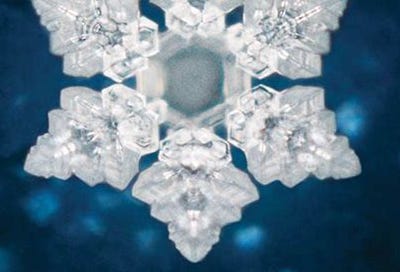As with most professions, astrologers come in many descriptions, and they do not always agree on every detail though there is usually much more consensus than conflict. To play it safe, I am going to cover, in separate posts, the Sun and the Moon in the horoscope. At the end, I want to play a little game with you and will describe it when posting on the Sun.
Some people call me a lunar astrologer, but the Moon is only one of the four cornerstones of my system of medical astrology. It relates to memory so we cannot understand it until we understand memory itself. Psychologists describe memory as short-term and long-term. If we want to draw analogies between human memory and technology, we could postulate that short-term memory is similar to RAM, and much of it is not saved to a hard drive. Long-term memory is very much like the filing system of a computer. We can only view one document at a time on the screen, but we can open a document, edit it, and overwrite the saved version.
What this means is memory is not a precise historic record but what we might call the composite of amendments and revisions. If you want a correct version of your personal history, you might have to maintain a journal or visit the Akash.
Maybe a little story about my Akita rescues will set the stage for understanding the last paragraph. I learned so much when I adopted a dog with a very sad history. One quirk was that if she wanted to go out, that went smoothly, but she seemed afraid to come back in the house. In the middle of winter with snow falling, I would sometimes have to keep the door open for five hours before successfully bringing her back into the house. I went through my entire repertoire of temptations: treats placed just over the threshold and bigger and better treats if she stretched to reach one, and then a giant reward when her tail finally crossed the threshold, but this took both of us hours and was always touch and go because she would retreat back outside if one hair was out of place. I could put her on a leash, take her out of the yard, pretend we were going for a drive and then sometimes successfully come into the house through the front door, but even this did not always work.
A colleague recommended an animal communicator. This changed my life forever and was well beyond fascinating. As the story unfolded, a young boy was responsible for caring for the dog, but he was not always tuned in to her needs so little things happened and the boy’s father would beat the dog by the back door. She was understandably terrified, eager to go out and reluctant to come back in.
Knowledge is one thing, communication is another. She had to know that I understood her hesitancy, and I had to understand that patience would eventually be rewarded. Little by little, her fear diminished and this was replaced by the joy I always wanted her to experience when laying out the treats. Tears streamed down my face when we overcame this challenge.
Over time, it would probably be safe to say that we not only succeeded in modifying her behavior, but the memories that were related to her fear became more and more faint.
The picture above shows the backdoor where she would be stuck for hours. You can see that she could be happy, but not at the threshold. Here she is, joyously exploring the potato patch, when she first came to live with me.
The relationship of the Moon to water is well understood in terms of scientific evidence of magnetic influences; but with the work of Emoto-sensei, we learned that water holds memories . . . but the memories can be overwritten by changing thoughtforms, music, and/or prayer. “Negative” thoughts cause structural changes in the water that can sometimes be ghastly so purification takes on an entirely new meaning when we accept that beauty, respect, compassion, joy, as well as alignment with our cultural and spiritual traditions makes a huge difference in the primary substance of our yin selves, water constituting roughly 70% of our bodies as well as the Planet where we are living.
For me, this understanding supports the need for recognizing that food is a blessing are cordial conversation and lovely music when eating.
Crystallized water taken with a darkfield microscope by Dr. Masaru Emoto and his team.
In the horoscope, the Moon symbolizes the composite of our incarnational journeys and is our line of least resistance. Our inner self has had a lot of experiences and has categorized these events and applied labels such as pleasant, frightening, appealing, dangerous, and just about every memory has an associated folder and adjective. Do you have a favorite color or number? What about art and music preferences? When choosing entertainment, do you prefer romance, adventure, sci-fi, historic dramas, comedy, sports, safaris, inspirational films, or documentaries? What foods do you like and which cause you allergic reactions?
Let me make this a little personal. My Moon is in Sagittarius in the ninth house. I have traveled all my life, studied numerous foreign languages, love anthropology and philosophy, and when I describe my mother, I often refer to the fact that she was Swedish, i.e., “foreign” in the sense that we lived in the U.S. My sister had the Moon in Cancer and hated everything foreign, never wanted to travel anywhere or try new cuisines. She saw our mother as a home maker.
Interestingly, our mother spoke Swedish to me and English to my sister. Once, my sister was babbling on and on about our parents, and I interrupted her to ask if she was talking about our mother or father. She said, “Mother” but I thought she was talking about our father, but I did not actually recognize either parent in what she was saying. In short, even what we observe and feel is circumscribed by what our antennae allow us to perceive. If no signals are detected, no response is elicited.
In general, this “lunar composite” symbolizes our interests as well as aversions, and it is projected onto the primary female figure in our lives, usually therefore the mother. A four-year old came up to me a beach party one evening and said, “Three of my brothers and sisters have Capricorn Moons, and my Moon is also in Capricorn. Does this mean my mother is a strict disciplinarian?” I was dumbfounded that such complex sentence structure and words came out of a child, but she would have made a fabulous student. She captured the essence of this unusually heavy focus on Capricorn and drew relevant conclusions . . . for which she appeared to be seeking confirmation.
Most likely, these four siblings would have agreed on many of the mother’s traits because they shared the similar lens filters. In my family, one or the other of us was probably the proverbial black sheep though we might have had higher priority issues to sort out than which one of us didn’t fit where we found ourselves.
I often reference the Yoga Sutras of Patanjali because he made a very clear distinction between conditioned consciousness and unconditioned consciousness. Lunar perceptions are always “conditioned” because we have so many biases that we cannot see things as they are when having so many idiosyncratic filters. I have called this “Miasms of the Moon” and have lectured extensively on this topic. One of the esoteric terms is “Dweller on the Threshold” but this is less clear, I think, than “miasms” because our perceptions are conditioned by our own experiences which are blurred by our tendencies to note certain particulars and miss other details.
To see “accurately”, we must transcend the filters, and this produces very significant changes in the body because the pituitary body, the master gland, goes from functioning in a lunar manner to seeing clearly, i.e., without the miasms. When people reach a stage in life where they want to explore deeply, they may undergo some type of therapy that eventually includes seeing other people and incidents as they are rather than as they feel or felt at the time of the event. This is very important for both psychotherapists and their clients because at some point, we may want to understand the “conditions” that contributed to our views and to see each person as that person would perhaps see himself or herself. For some people, this feels detached and converts the experiencer into an observer rather than participant.
With this background, we can take the understanding of the Moon a little further. The signs, well, two of them, have been mentioned. The signs have interests and attributes that are either quite well developed or in the process of becoming so. Some people refer to advanced souls or young souls, but it is actually far more complicated because on some level, we are already perfect so what is evolving is our ability to manifest who and what we already are.
There are many ways to explore past lives so when we are fortunate enough to meet a good facilitator, we can begin to see how we got to where we are now. Usually, long before this, there were hints.
For instance, in my childhood, sometimes a minister or teacher would talk about something and whole complex scenes appeared before my mind’s eye. I could see historic events as they appeared to me at the time they happened. Pay attention to the words, “As they appeared to me” which is like a movie in my mind or a dream that is particularly detailed and colorful. Other times, one could sit in a pew or classroom and be bored almost into oblivion by the “irrelevance” of the subject matter. These might have been hints. Being strongly affected by something is a potential trigger to recall. If we pause and allow ourselves to do a deep dive, we may find ourselves in another realm having experiences that could not possibly be happening on Earth as we currently know it.
If using Vedic astrology, the Moon is also in a particular nakshatra that provides additional insights. In all systems of astrology, the houses are also considered because they define specific areas of interest that will, throughout life, require more effort in life. Unfortunately, we must know the correct time of birth in order to reference the houses.
Western astrologers depend heavily on what are called aspects. These are angular relationships between planets. They actually have a foundation in physics that my father explained is called gravitational vectoring. He was in aerospace and took up astrology later in life. If you can remember the time when radios and televisions depended on antennae to get a clear signal, you will understand that the angles reference reception. For example, can you really be clear about what you are trying to say or are your feelings so tangled up that others cannot make sense of what you are conveying? Maybe, it is also true that certain details go missing when there is an attempted interaction. It is like the record button never lit up.
An example is that when the antenna is exactly at a 90 degree angle to the transmitter, there is no reception. Move the antenna just a little and the snow appears. This “square” is also considered to be the most difficult aspect in astrology.
Next, the Moon makes contacts with planets and these reveal things like curiosity or resistance to new ideas, ease of learning versus difficulty processing information, fears associated with poverty or confidence over affluence, religious polarization or persecution, tendencies towards being trusting or gullible, phobias around hygiene and health, and even insanity. This list is by no means complete but how we perceive is heavily influences by aspects between planets.
There are experiences that are so horrifying that they push us over the edge. If we leave the memories at edge, we may have what some shamans call “lost soul” but this is another term I usually define differently. There is memory fragmentation, but whether or not we need to reclaim all the pieces is a choice each person can make at the time it suits that individual.
I take a very soft view of “the edge” because many incidents we have experienced were truly shattering. People have been raped, forced into battle, burned at the stake, subjected to inhumane treatments in institutions, had terribly disfiguring and painful diseases, died of hunger on the streets while watching others eat, been abandoned by family and tribe, lost loved ones at an early age. It’s hard to imagine all that might have happened, but we are each of us more sensitive to certain experiences than to others. Betrayal is hard for some people to accept, but others are more cynical and withhold trust in order to avoid disappointment. The point here is that we have scars, usually a lot of them. We also have open wounds and vulnerabilities so we see certain traits more clearly than other behaviors; and because we tend to see only what we recognize, we see some incidents factually, but at times we color or project from our own memory archives. Then, the mother or mother figure can function as the screen on which we see the projection.
We usually see the father more like he really is or was, but we, of course, miss whatever our own radar fails to detect. If orphaned or exposed to multiple surrogate parental figures, we still see through our own lenses, but we usually have unique vulnerabilities revolving around rejection, loss, abandonment, and love.
This overview would not be even minimally complete unless the elements were mentioned. Astrology uses four elements: fire, earth, air, and water. Each element has affinities for certain types of interaction and expresses feelings that are consistent with the element.
Fire experiences an arousal of passion that can lead to anger or righteous indignation, but it is useless unless there is a commitment of energy towards resolving the issues that are out of balance. When the issue is personal, the goal should be on whether there is sufficient passion to correct the imbalance. When fire is passive, as when listening to someone else’s lament, it is often thinking about how to fix the problem. There may be deep concern and compassion, but fire is feeling that “this person needs help” so whether repairing broken furniture or healing from a disease, fire is feeling that action is being sought to resolve the issue. It does not usually come naturally to fire types to think that some people are just explaining themselves and their situations, and they are not necessarily asking for help. What others most need to understand about fire is that besides all the annoying traits, fire is loyal, courageous, and idealistic. If the emotions are focused, fire can resolve injustices.
Earth is practical and wants stability so attention will usually go into strategies that preserve the status quo or protect the interests that are at stake. Where fire is idealistic, earth is realistic, so what feels best is whatever will provide security and prevent the boat from capsizing. If unable to resolve issues that arise, earth can become depressed and rigid, i.e., less interactive and less responsive to outer influences. Earth can handle the facts so laying the cards face up will help in navigating any issues that arise. It is important to be clear, dependable, and practical when trying to reach mutually acceptable accords.
Air is social and interactive. Up to a point, air wants stimulation. New topics and differences can be interesting even if they do not sway. Air is the least judgmental and most tolerant of the elements, but there is a point when space is needed so a little downtime helps to keep the energies from fraying. Otherwise, air will tend to multitask, become scattered and perhaps enervated. The nervous system of air types can be overstimulated so there are vulnerabilities towards minor oversights, exaggerated and baseless worries, exhaustion from fretting over issues that exist mainly in the imagination rather than reality. Air needs information and conversation to remain engaged. They usually function best if they have friends and a social life in addition to partnership. Air types can be progressive if they have sufficient understanding and clarity surrounding whether or not innovations are realistic. Otherwise, the ideas can excite but remain ungrounded. When interacting with air types, do not say anything that will generate fear or anxiety. If there is a serious issue, allow time to interact. Do not bring up an important subject and then walk out of the room.
Water sees others in terms of relationships. For instance, a mother might refer to her husband or child without using a name because her feelings are usually directly related to the expectations and complications inherent in relationships that have enduring value. The most accessible emotion is sadness so there can be tears but also empathy and compassion for others. Bonds are very important but can easily be misinterpreted if people are not on the same page. Water is protective and seeks commitment. When disappointed, water is usually unprepared and needs to be consoled. Water can be a good organizer if everyone has a role and knows what is expected. Water can be very nurturing and protective of those most dear but will often have expectations that are consistent with the perceived relationship. Children can model themselves after parents and eventually mature and become good parents, maybe even matriarchs or patriarchs of families and groups such as religious, charitable, and corporate assemblies where lots of people need to have both a niche and role model.
These are thumbnail sketches. I have written whole books about just one element, but this will help some people to recognize that people have different primary emotions and needs. Some people want a lot of independence and some some want protection. We all need to be understood and accepted for who we are so we can start with one toe in the water!
Copyright by Dr. Ingrid Naiman || All Rights Reserved
For permission to quote, please contact the author. Sharing via e-mail and posting links are welcome so long as the author and source are properly cited. Reprinting is strictly prohibited.
Images:
Savika: photograph by Ingrid Naiman
Crystallized Water: cover of Messages from Water | Dr. Masaru Emoto
The Elements: Mirko Milutinovic | Dreamstime.com










